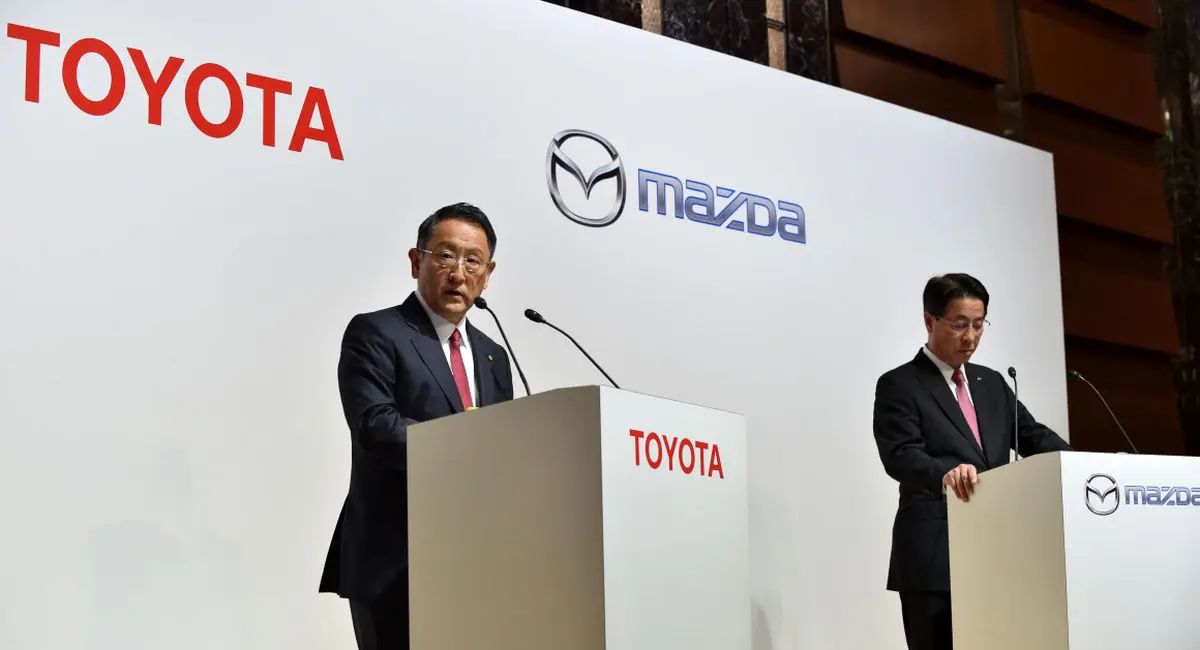Toyota, Mazda invite U.S. states to compete for a rich prize

Toyota Motor Corp (7203.T) opened the door to a bidding war among Midwestern and southern states seeking to land jobs and investment when it announced on Friday it would build a $1.6 billion U.S. assembly plant with Mazda Motor Corp (7261.T).
Toyota North America chief Jim Lentz told Reuters in an interview the automaker has not started searching for sites for the plant, expected to employ 4,000 workers, but would locate the factory near Toyota's existing supply chain.
Toyota has 10 U.S. plants in eight states in an arc that runs from West Virginia through Kentucky, Indiana, Alabama, Mississippi and Texas.
For Toyota, the investment is a push to expand U.S. vehicle-making capacity and market share and intensify its attack on the Detroit automakers' lucrative truck business.
The announcement also comes as U.S. President Donald Trump has threatened tariffs to curb auto imports and is working with Republican officials to woo investment in domestic production.
States covet auto assembly plants because they typically pay above-average wages and spin off jobs at suppliers and service companies.
Southern states have advantages including rail and highway infrastructure, proximity to major ports and business-friendly labor and regulatory environments, said Foster Finley, head of consulting firm AlixPartners operations practice.
Midwestern states such as Ohio or Michigan can counter those strengths with incentives such as tax breaks or publicly funded worker training programs.
“All of it boils down to an economic arrangement,” he said.
Michigan Governor Rick Snyder said in a statement on Friday that legislation approved last week to reduce taxes on business investment "is likely something that would make Michigan competitive over other states for this project."
The Toyota announcement came after Wisconsin last week said it will award Taiwanese manufacturer Foxconn a record $3 billion in refundable tax incentives to build a $10 billion LCD panel factory that will initially employ 3,000 people.
Still, Finley cautioned that the knock-on economic benefits of the new auto plant may be limited as much of the value of vehicles built there will likely still come from parts made in Mexico or Asia.
END
